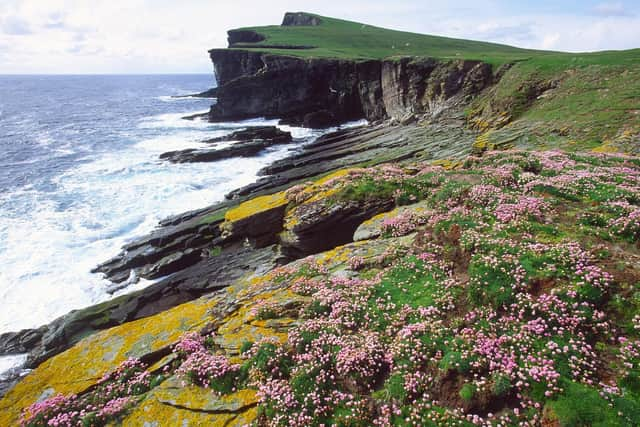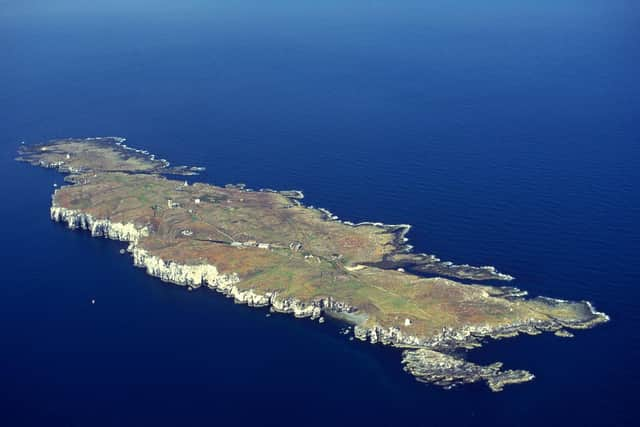Island nature reserves ban all visitors in bid to curb spread of deadly avian flu as thousands of seabirds perish
and live on Freeview channel 276
Visitor landings will be halted at national nature reserves in the Firth of Forth and in the Shetland Islands from 1 July to help safeguard vulnerable populations of species such as gannets, guillemots and puffins from the deadly virus.
The Isle of May and Noss reserves, which are managed by state agency NatureScot, will shut, while people are also advised not to take direct access onto seabird colonies on other national nature reserves such as Hermaness, also in.
Advertisement
Hide AdAdvertisement
Hide AdThe move comes amid mounting concern over the spread and number of fatalities caused by the current, highly virulent H5N1 strain of avian flu – particularly in seabird colonies.
The virus is widespread across Scotland, with positive cases recorded in Shetland, Orkney, St Kilda, Lewis and St Abbs.
Large numbers of dead and sick seabirds have also been reported from Aberdeenshire, East Lothian and the west coast of Sutherland.
Great skuas and gannets have been hardest hit.


Sample surveys show colonies of great skuas, also known as bonxies, have crashed by 64 per cent decline on St Kilda and 85 per cent at Rousay in Orkney.
Advertisement
Hide AdAdvertisement
Hide AdGreat black-backed gulls, Arctic terns, common guillemots and puffins have also tested positive.
The decision to restrict access to NatureScot’s two island national reserves, which in summer are home to hundreds of thousands of breeding seabirds, has been taken to limit the spread of the virus through bird populations and give colonies the best possible chance of survival and recovery by reducing additional stress.
While avian flu has been confirmed in gannets at Noss, there have been no confirmed cases on the Isle of May yet.


However, Bass Rock, which has the world’s largest Northern gannet population, has been badly affected.
Advertisement
Hide AdAdvertisement
Hide AdAt other coastal national nature reserves such as Hermaness in Shetland, visitors will be asked to avoid walking through seabird colonies and instead enjoy the spectacle from a distance. Local signage will be in place at those reserves affected.
“The decision to close these reserves has not been taken lightly, but we are increasingly concerned about the devastating impact avian flu is having in Scotland, particularly on our seabird colonies, Eileen Stuart, deputy director of nature and climate change at NatureScot, said.
“Our island reserves in particular are a haven for internationally important bird populations.
“The situation has been rapidly evolving and deteriorating, and we feel at this time that restricting access to these sites and reducing it at others is a precautionary but proportionate approach that gives us the best chance of reducing the spread of the virus and its impact.
Advertisement
Hide AdAdvertisement
Hide Ad“We recognise that this will be disappointing for those planning a visit but we hope people understand that this is about protecting our precious seabird populations for the future.”
Visitors will still be able to enjoy the summer seabird spectacle at both island reserves by taking round-island trips without coming ashore, she said, and at other reserves by viewing from a short distance without crossing through colony areas.
The situation will be under regular review over the coming weeks.
Comment Guidelines
National World encourages reader discussion on our stories. User feedback, insights and back-and-forth exchanges add a rich layer of context to reporting. Please review our Community Guidelines before commenting.
